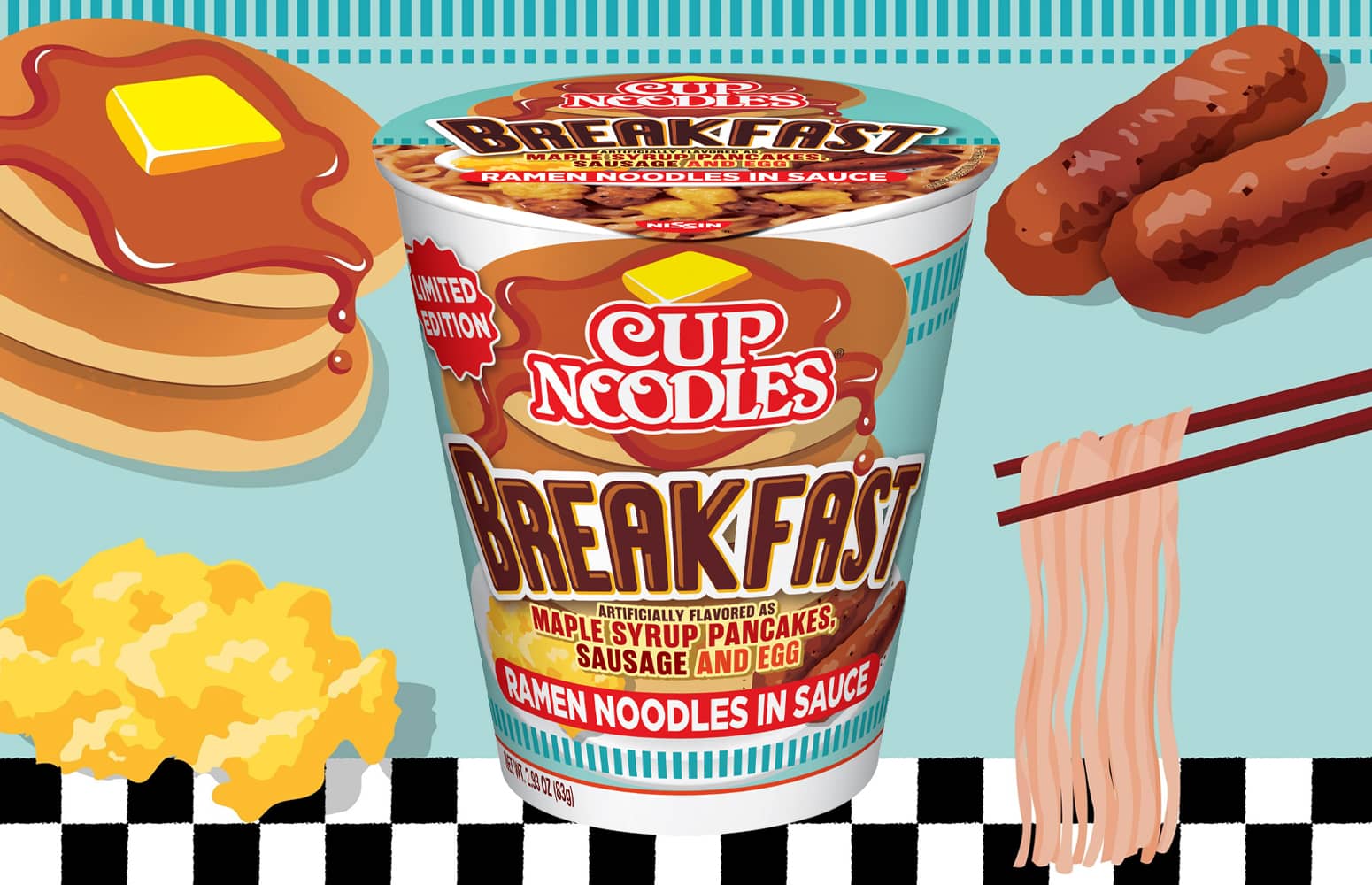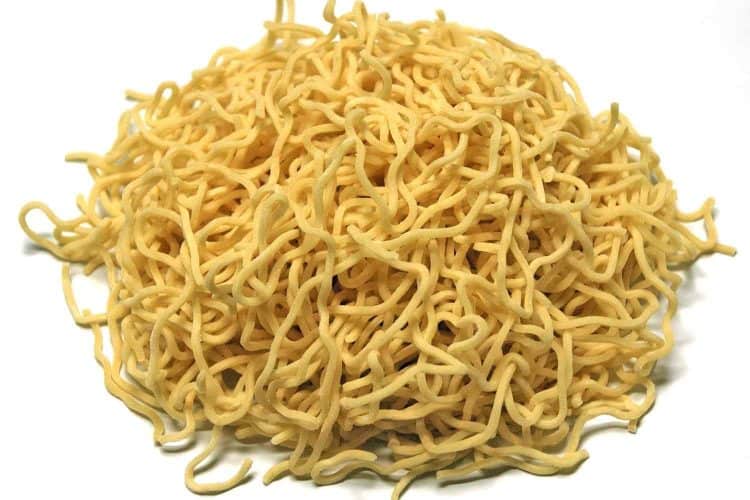Ramen noodles deaths have become a topic of significant concern in recent years. The instant noodles, which are a staple in many households, have been linked to several fatalities, sparking debates about their safety. This article aims to delve into the facts, myths, and truths surrounding this issue, ensuring you are well-informed about the potential dangers of consuming ramen noodles.
Ramen noodles are a convenient and affordable food choice for millions around the globe. However, the growing number of reports connecting them to deaths has raised eyebrows and questions about their ingredients and health implications. In this article, we will explore the science, statistics, and expert opinions to provide a comprehensive understanding of this controversial topic.
As we navigate through the intricacies of ramen noodles deaths, it is crucial to separate fact from fiction. By the end of this article, you will have a clear picture of the risks associated with ramen consumption and how to make safer choices for your health.
Read also:2nd Largest Hospital In The World Exploring Its Size Services And Impact
Table of Contents
- Introduction to Ramen Noodles Deaths
- A Brief History of Ramen Noodles
- Key Ingredients in Ramen Noodles
- Health Risks Associated with Ramen Noodles
- Ramen Noodles and Fatalities
- Scientific Studies on Ramen Consumption
- Preventing Ramen-Related Health Issues
- Common Myths About Ramen Noodles
- Healthier Alternatives to Ramen Noodles
- Conclusion and Final Thoughts
Introduction to Ramen Noodles Deaths
Ramen noodles deaths have been a subject of discussion in both scientific and public circles. While these noodles are popular due to their convenience and taste, the rising reports of adverse health effects have led to increased scrutiny. Understanding the root causes and contributing factors is essential for making informed decisions about your diet.
The controversy surrounding ramen noodles stems from their ingredients and preparation methods. Many brands use preservatives and additives that, when consumed excessively, can lead to severe health complications. This section will examine the connection between ramen noodles and fatalities, backed by credible research and expert opinions.
A Brief History of Ramen Noodles
Ramen noodles have a rich history that dates back centuries. Originating in China, they were introduced to Japan in the late 19th century, where they underwent significant transformations. Today, ramen noodles are enjoyed worldwide, with various flavors and styles catering to diverse tastes.
Evolution of Ramen Noodles
The evolution of ramen noodles highlights their adaptability and cultural significance. From traditional broth-based recipes to instant versions, ramen has evolved to meet the demands of modern consumers. However, this evolution has also introduced new health concerns, particularly with the rise of processed and packaged options.
Key Ingredients in Ramen Noodles
The ingredients used in ramen noodles vary depending on the brand and type. Common components include wheat flour, palm oil, salt, and a variety of flavor enhancers. Below is a list of key ingredients found in most ramen products:
- Wheat Flour
- Palm Oil
- Salt
- Monosodium Glutamate (MSG)
- Flavoring Agents
- Preservatives
Understanding these ingredients is vital for assessing the potential health risks associated with ramen noodles.
Read also:Office Siren Dti Revolutionizing Workplace Communication
Health Risks Associated with Ramen Noodles
Consuming ramen noodles in moderation is generally safe for most people. However, excessive intake can lead to several health issues, including cardiovascular problems, obesity, and digestive disorders. The high sodium content and presence of trans fats are particularly concerning.
Cardiovascular Health
Studies have shown a correlation between frequent ramen consumption and an increased risk of heart disease. The high levels of sodium and unhealthy fats contribute to elevated blood pressure and cholesterol levels, both of which are risk factors for cardiovascular complications.
Ramen Noodles and Fatalities
While ramen noodles deaths are rare, they do occur, often due to underlying health conditions exacerbated by poor dietary choices. Cases of fatal outcomes have been reported in individuals with pre-existing medical issues who consumed large quantities of ramen over extended periods.
Case Studies
Several case studies highlight the dangers of excessive ramen consumption. For instance, a study published in the Journal of Nutrition found that individuals who consumed instant noodles more than twice a week were at higher risk of metabolic syndrome, a condition linked to heart disease and diabetes.
Scientific Studies on Ramen Consumption
Scientific research provides valuable insights into the effects of ramen noodles on human health. Numerous studies have explored the nutritional value and potential risks associated with these products. Below are some key findings:
- Ramen noodles are high in calories but low in essential nutrients.
- Frequent consumption is linked to weight gain and obesity.
- Preservatives and additives in ramen can disrupt gut health.
These studies underscore the importance of moderation and balanced nutrition when incorporating ramen into your diet.
Preventing Ramen-Related Health Issues
Preventing health issues related to ramen noodles involves making informed choices about your diet. Consider the following tips:
- Limit your consumption to occasional servings.
- Opt for brands that use natural ingredients and lower sodium levels.
- Pair ramen with fresh vegetables and lean proteins to enhance nutritional value.
By adopting these practices, you can enjoy ramen noodles without compromising your health.
Common Myths About Ramen Noodles
Several myths surround ramen noodles, often leading to misconceptions about their safety. Below are some common myths debunked:
- Myth 1: Ramen noodles are inherently toxic. Fact: When consumed in moderation, they are safe for most people.
- Myth 2: All ramen noodles contain harmful chemicals. Fact: Some brands prioritize natural ingredients and healthier formulations.
Understanding these myths can help dispel unnecessary fears and encourage responsible consumption.
Healthier Alternatives to Ramen Noodles
If you're looking for alternatives to traditional ramen noodles, several options are available. Consider the following choices:
- Whole grain noodles
- Shirataki noodles
- Quinoa pasta
These alternatives offer better nutritional profiles and can be a healthier substitute for those seeking to reduce their intake of processed foods.
Conclusion and Final Thoughts
In conclusion, ramen noodles deaths are a rare but serious concern that warrants attention. By understanding the ingredients, health risks, and preventive measures, you can make safer choices regarding your diet. It is essential to consume ramen noodles in moderation and prioritize balanced nutrition for optimal health.
We encourage you to share your thoughts and experiences in the comments section below. Additionally, feel free to explore other articles on our site for more insights into healthy living and nutrition. Together, we can promote awareness and make informed decisions about the foods we consume.
Data Sources:
- Journal of Nutrition
- World Health Organization
- Food Safety Authority Reports

